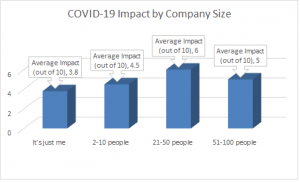
Cash can be classified as a long-term asset if they are designated for specific purposes such as a plant expansion project, or a long-term debt retirement, or as collateral. Consider hiring an Accountant if you are unsure how to track cash on hand or other financial activities within your business. From an economic standpoint, cash in hand is not “good” because it doesn’t generate any interest or returns. Additionally, holding large sums of currency can erode its value due to inflation or casualty loss. Two phrases often used interchangeably are “cash on hand” and “cash in hand.” Though they may seem similar, there is a big difference between them.
- A company’s foreign currency is reported in Canadian dollars at the exchange rate at the date of the balance sheet.
- The entity can prepare a prepaid expenses schedule to ensure that some prepaid expenses are recorded eventually for certain kinds of prepaid expenses.
- For example, accounts receivable are expected to be collected as cash within one year.
- These expenditures include items such as postage, delivery expense, and minor office supplies (e.g., coffee).
- On top of that, other digital and contactless payment methods have the added benefit of being much more secure, traceable, and less vulnerable to fraud.
- Marketable securities are financial assets and instruments that can easily be converted into cash and are therefore very liquid.
Petty cash can also work for frequent but mundane expenses, like milk for the office fridge, stamps, or cleaning supplies. Cash, in many cases, remains the quickest, simplest, easiest way to pay for things. It works well to cover small impromptu expenses—like a tip for the kid delivering pizzas to the lunch meeting, or cab fare home for employees working late. It saves the hassle of reimbursing people or expecting them to pay out-of-pocket for work-related items. Work in progress is the kind of in-progress goods, and the cost normally combines the raw material, labor, and other direct overhead. For example, accounts receivable are expected to be collected as cash within one year.
What’s Not Included in Cash Equivalents
There are several important reasons why a company should store some of its capital in cash equivalents. As of Sep. 30, 2022, Berkshire Hathaway had $28,869,000,000 in cash and cash equivalents. Because a petty cash voucher is made out for all disbursements, the total of the vouchers and the remaining cash should always equal the amount of the fund (in this case, $100). Next, total the amount of all the outstanding slips (plus attached receipts).
Many companies have bank accounts in other countries, especially if they are doing a lot of business in those countries. A company’s foreign currency is reported in Canadian dollars at the exchange rate at the date of the balance sheet. Each time you tap into a petty cash fund—that is, take money out—a slip or voucher should be filled out. This acts as a receipt, logging the amount of the withdrawal, the date, the purpose, and other details.
More from Merriam-Webster on petty cash
Petty cash or a petty cash fund is a small amount of money available for paying small expenses without writing a check. Petty Cash is also the title of the general ledger current asset account that reports the is petty cash a cash equivalent amount of the company’s petty cash. The amount of petty cash will vary by company and may be in the range of $30 to $300. A certificate of deposit is a type of savings account with a financial institution.

In general, having cash in hand is a good thing as it gives you more financial security and control over your finances. Having funds readily available allows you to control and monitor your spending. However, depending on your business’s structure and goals, it can be bad. For example, you might use “cash in hand” to purchase quick unexpected business items at a store. In contrast, petty cash is assigned for a particular expense, such as monthly business luncheons at a restaurant.







